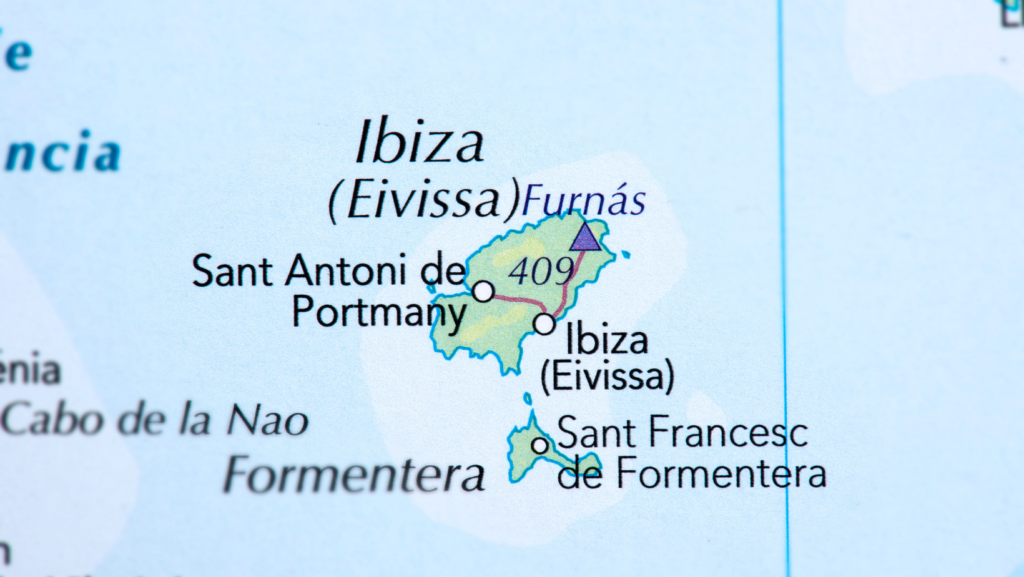The Escritura de Compraventa, commonly known as the Deed of Sale in Ibiza, is the legally binding document that officially transfers property ownership from the seller to the buyer. This contract plays a crucial role as the final step in acquiring full ownership and rights over the property. In Spain, both parties must appear before a notary public to review, agree, and sign this document. The notary oversees and authenticates the agreement, which provides the necessary authority for the document to be registered in the Spanish Land Registry, officially recognizing the buyer as the owner.
The Importance of the Deed of Sale in Ibiza Property Purchases
This document is not just a legal formality; it’s a critical point when both parties review and record the property’s full details, including any obligations or restrictions. The notary’s involvement helps ensure that both the buyer and seller understand their rights and obligations, adding an extra layer of protection in this often complex transaction.
Key Elements in a Deed of Sale
When signing the Deed of Sale in Ibiza, you should expect certain essential elements to ensure the contract’s validity:
- Identification Details: Legal names and identification details of both buyer and seller.
- Property Description: A precise description, including registration details.
- Purchase Price Confirmation: Agreed purchase price and any remaining balance.
- Payment Terms: Information on payment settlements, including any withheld amounts.
- Legal Statements: Declarations from both parties affirming they have the legal capacity to complete the transaction.
Once both parties sign the deed, the notary submits it to the Spanish Land Registry, finalizing the legal ownership documentation.

Important Tax Considerations for Non-Residents
If the seller is a non-resident of Spain, the buyer must withhold 3% of the purchase price and remit it to the Spanish Tax Agency. This requirement prevents certain tax evasions, including capital gains tax. Buyers should pay this 3% within 30 days of the transaction to avoid personal liability for the seller’s capital gains taxes and potential fines. Confirm the seller’s residency status with your legal advisor before signing the Deed of Sale in Ibiza to avoid unexpected tax responsibilities.
What Happens After Signing the Deed of Sale?
Several important steps follow after signing the public deed at the notary’s office to secure full ownership of the property.
1. Registering the Property
After the deed is signed, the notary electronically submits it to the Land Registry. This filing, valid for 60 days, allows the buyer to finalize registration and ensures any existing encumbrances are recorded accurately, typically with assistance from a gestoría.
2. Addressing Tax Obligations
Depending on the type of property, specific taxes may apply:
- Transfer Tax (ITP): Required for second-hand properties.
- Value Added Tax (VAT): Applicable for new properties or land, along with Stamp Duty.
A legal expert can help you understand the tax obligations tied to the Deed of Sale in Ibiza based on your property details.
Notifications to the Local Town Hall
After the Deed of Sale in Ibiza is complete, notify the local town hall. The notary’s office usually handles this electronically, which helps ensure tax compliance, especially for urban properties where capital gains tax may apply. Confirm that the seller has provided proof of payment for this tax to avoid unexpected costs.

Essential Steps to Finalize Your Property Ownership
With the Deed of Sale signed and registered, take these final steps to secure your Ibiza property fully:
- Transfer Utilities: Change ownership of accounts like electricity, water, gas, internet, and phone. For new builds, confirm utility setups during key handover.
- Secure Documentation: Retain copies of the deed, mortgage papers, and all related invoices for future reference.
- Introduce Yourself to the Community: Notify the president or administrator if the property is part of a community association to ensure recognition and association compliance.
- Verify Land Registry Details: Confirm your ownership with a confirmation letter from the Land Registry.
Why the Deed of Sale Is Essential in the Ibiza Real Estate Market
The Deed of Sale in Ibiza does more than confirm ownership; it serves as a protective document in the event of disputes. This deed can clarify property boundaries, tax obligations, or title issues, solidifying its role in Spanish property law. Working with professionals, including a notary and a gestoría, ensures the deed aligns with legal standards and specific transaction requirements.
Key Takeaways for Property Buyers in Ibiza
Navigating the Deed of Sale and property registration process can be complex, especially for non-residents. Here’s a summary of essential considerations:
- Confirm Seller’s Residency: Determine if the seller is a Spanish resident to avoid unexpected tax obligations.
- Collaborate with a Gestoría: Let a professional manage registration and post-deed procedures for a smoother transition.
- Budget for Taxes and Fees: Account for costs like Transfer Tax (ITP) or VAT and Stamp Duty.
For more insights on property deeds in Spain, consult to Hoy Hoy Ibiza and reach out to Hoy Hoy Ibiza for local expertise.
